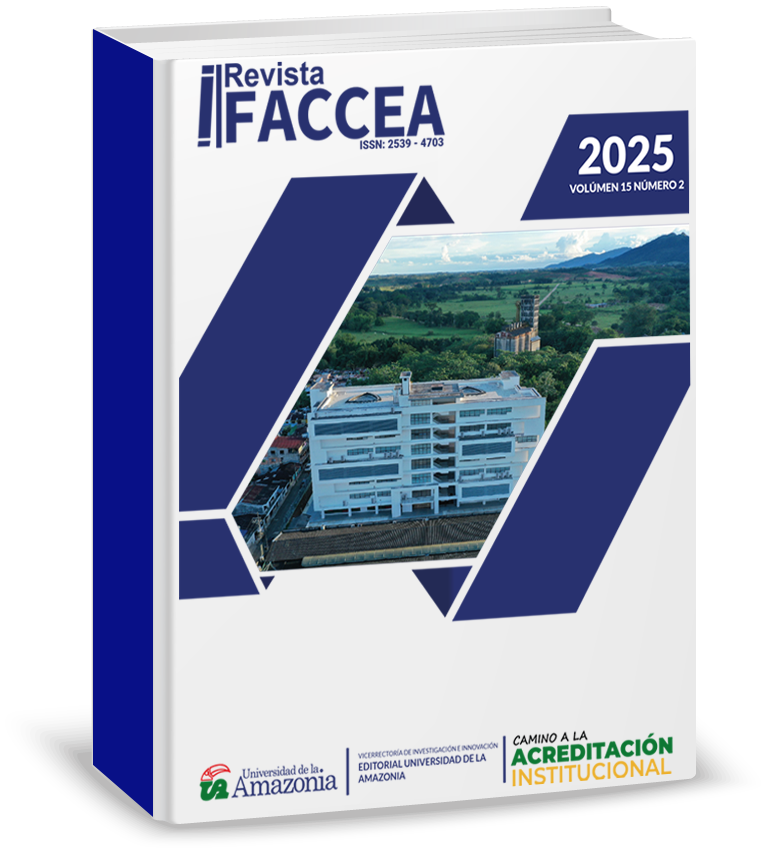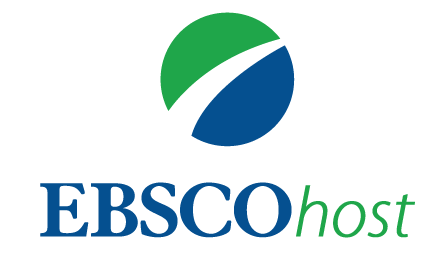MARKET STUDY ON FRUIT PULPS IN SALTOS DEL GUAIRÁ, PARAGUAY
DOI:
https://doi.org/10.47847/faccea.v15n2a2Keywords:
Food, Consumption, Fruit, Nutrition, MarketAbstract
Fruit pulp is the result of processing fresh fruit, where its fleshy part is extracted. This product is used in the production of juices, nectars, smoothies, cocktails, and others, and serves as an alternative that facilitates fruit consumption. The objective of the research was to analyze the market for fruit pulps in Saltos del Guairá, Paraguay. A quantitative, descriptive, non-experimental methodology was used, and the population consisted of 100 people from Saltos del Guairá who were surveyed. Data collection took place during the second semester of 2024. Market analysis shows that 74% of respondents are women, which influences purchasing decisions regarding fruit pulps. Additionally, 64% are workers and 27% are students. Although 64% consume pulps, 41% do not purchase them regularly, presenting a market opportunity, especially with 16% interested in trying them. The purchase frequency indicates that 40% acquire pulps once a week. Supermarkets are the most popular purchase location at 42%, but 44% do not buy this product, highlighting an untapped segment. Fruit preferences mainly include tropical varieties. Furthermore, 63% are aware of the nutritional benefits of pulps, which can be useful for their promotion. The motivation for purchase focuses on nutritional value (71%) and flavor (46%), with 83% wishing to integrate them into their diet. Consumers prefer low prices, specifically 10.000 Gs, suggesting that competitive pricing strategies are essential. The study contributes to the understanding of fruit pulp consumption and its acceptance in the local market, providing information to develop marketing and promotional strategies based on consumer preferences and habits.
Downloads
References
Abalos Masabanda, A. M., & Pastuña Chusin, M. M. (2022). Plan de negocios para la creación de una empresa de producción y comercialización de pulpa de naranjilla en el cantón Pangua 2022. [BachelorThesis, Ecuador : La Mana : Universidad Técnica de Cotopaxi (UTC)]. http://localhost/handle/27000/8673
Aguilar, S. (2023, junio 3). Diario HOY | Solo el 4% de los paraguayos consume cinco frutas al día. Diario HOY. https://www.hoy.com.py/nacionales/solo-el-4-de-los-paraguayos-consume-cinco-frutas-al-dia
Aguirre Herrera, F. A. (2020). Plan de negocios para la creación de una empresa productora de pulpa de mora en el cantón Pangua provincia de Cotopaxi. https://repositorio.puce.edu.ec/handle/123456789/18560
Ahmed, N., Li, C., Khan, A., Qalati, S. A., Naz, S., & Rana, F. (2021). Purchase intention toward organic food among young consumers using theory of planned behavior: Role of environmental concerns and environmental awareness. Journal of Environmental Planning and Management. https://www.tandfonline.com/doi/abs/10.1080/09640568.2020.1785404
Álamo, P., & Arzubiaga, U. (2024). Chapter 18: Frutas y Verduras San Miguel: gambling with the future of the family firm. https://www.elgaronline.com/edcollchap/book/9781035307357/book-part-9781035307357-32.xml
Duarte Sánchez, D. D., & Guerrero Barreto, R. (2024). Revisión de técnicas e instrumentos de recolección de datos en investigación de mercado. Revista de ciencias empresariales, tributarias, comerciales y administrativas, 3(1). https://educaciontributaria.com.py/revista/index.php/rcetca/article/view/52
Duarte Sánchez, D., & Guerrero Barreto, R. (2024). La investigación cuantitativa en las ciencias sociales. REVISTA CIENTÍFICA UNE, 7(1). http://revistas.une.edu.py/index.php/revista_une/article/view/275
Eyinade, G. A., Mushunje, A., & Yusuf, S. F. G. (2021). The willingness to consume organic food: A review. Food and Agricultural Immunology. https://www.tandfonline.com/doi/abs/10.1080/09540105.2021.1874885
FAO. (2024). Frutas tropicales. MarketsAndTrade. https://openknowledge.fao.org/server/api/core/bitstreams/3df09bd5-4376-403c-b4c6-ddec2a1c4f66/content
Fonseca, A. M. A., Geraldi, M. V., Junior, M. R. M., Silvestre, A. J. D., & Rocha, S. M. (2022). Maracuyá morada ( Passiflora edulis f. edulis ): Una revisión exhaustiva sobre el valor nutricional, el perfil fitoquímico y los efectos asociados para la salud. Food Research International, 160, 111665. https://doi.org/10.1016/j.foodres.2022.111665
González, C. C. (2024). Caracterización de la exportación de piña ananas comosus l. de los productores del distrito de horqueta departamento de Concepción. Arandu Poty, 3(2), 2. https://divulgacioncientifica.unca.edu.py/index.php/AranduPoty/article/view/151
Hernández Sampieri, R., & Mendoza Torres, C. P. (2018). Metodología de la investigación: las rutas cuantitativa, cualitativa y mixta (1.a ed.). McGRAW-HILL INTERAMERICANA EDITORES.
Jácome Nogales, S. C. (2020). Plan de negocios para la creación de una empresa de fabricación y comercialización de derivados de pulpa de frutas exóticas ecuatorianas combinadas con hierbas medicinales endulzadas con stevia en el sector centro norte de la ciudad de Quito año 2018. [BachelorThesis, Universidad Tecnológica Indoamérica]. https://repositorio.uti.edu.ec//handle/123456789/1595
Lehner, F. V., & Gavilan, M. (2022). Sistemas alimentarios y agroecología en Paraguay. Cadernos de Agroecologia, 17(3). https://cadernos.aba-agroecologia.org.br/cadernos/article/view/6820
Mesías, F. J., Martín, A., & Hernández, A. (2021). Consumers’ growing appetite for natural foods: Perceptions towards the use of natural preservatives in fresh fruit. Food Research International, 150, 110749. https://doi.org/10.1016/j.foodres.2021.110749
Meza Miranda, E. (2021). Perfil de compuestos bioactivos beneficiosos para la salud en frutas autóctonas del Paraguay. Conferencia on line: Perfil de compuestos bioactivos beneficiosos para la salud en frutas autóctonas del Paraguay. http://repositorio.conacyt.gov.py/handle/20.500.14066/3701
Ministerio de Salud Pública y Bienestar Social de Paraguay. (2023). Consumo diario de frutas y verduras es esencial para una alimentación saludable. https://www.mspbs.gov.py/portal/27877/consumo-diario-de-frutas-y-verduras-es-esencial-para-una-alimentacion-saludable.html
Pezo, M. del, & Roxana, L. (2021). Plan de negocio para la producción y exportación de pulpa congelada de maracuyá [bachelorThesis, Guayaquil: ULVR, 2021.]. http://repositorio.ulvr.edu.ec/handle/44000/4764
Solórzano González, J. A., Punguil González, S. D., & Soriano Idrovo, P. (2022). Plan de negocio para la producción ecoamigable y distribución de pulpa de fruta feijoa en la ciudad de Guayaquil [Thesis, ESPOL. FCSH]. http://www.dspace.espol.edu.ec/handle/123456789/55952
Triana Murcia, D. C. (2021). Plan de negocio para la producción de pulpa de fruta 100% natural en la empresa Frutao en la ciudad de Villavicencio, bajo un modelo de economía circular y criterios de sostenibilidad [PhD Thesis, Universidad Santo Tomás]. https://repository.usta.edu.co/handle/11634/42691
Vazquez, M. E. P., Serafini, M. A., & Vacchetta, C. A. S. (2022). Hábitos alimentarios y estado nutricional en pacientes diabeticos con retinopatía que acuden a una clínica oftalmológica privada de la ciudad de Asunción, Paraguay. UNIDA Salud, 1(1). https://revistacientifica.unida.edu.py/publicaciones/index.php/unidasld/article/view/87
Yahia, E. M., Maldonado Celis, M. E., & Svendsen, M. (2017). The Contribution of Fruit and Vegetable Consumption to Human Health. En Fruit and Vegetable Phytochemicals (pp. 1-52). John Wiley & Sons, Ltd. https://doi.org/10.1002/9781119158042.ch1
Downloads
Published
Issue
Section
License
Copyright (c) 2025 Journal of the Faculty of Accounting, Economics and Administrative Sciences -FACCEA

This work is licensed under a Creative Commons Attribution-NonCommercial-ShareAlike 4.0 International License.



















